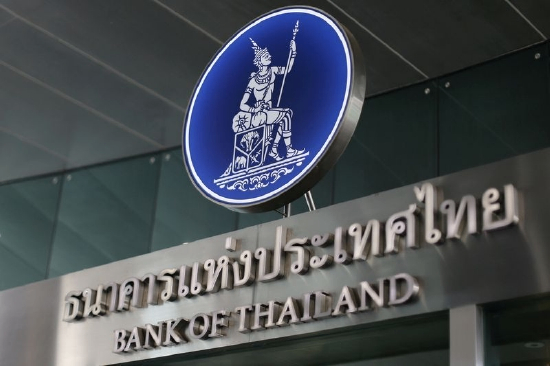Thailand to carry out debt restructuring Household debt crisis into "rotten bones"
Thailand's high level of indebtedness remains a major problem and initiatives to address household debt are difficult to implement.。
It is reported that the Thai government intends to carry out debt restructuring to solve the problem of informal debt and usury, and the implementation of a long way to go.。The government is urged to focus on the root causes of this long-standing problem, ensure fair distribution and economic growth, and create high-income jobs for people.。
Thai Prime Minister Srettha Thavisin said informal debt is like modern slavery and the country has put it on the agenda and will introduce a series of measures, such as agencies working with the Ministry of the Interior (MOI) and the National Police Agency (TNPD) to prevent unregulated lending.。In addition, there is assistance to debtors in reconciling disputes and preventing and cracking down on injustices such as intimidation in the debt collection process.。
Upon completion of the above mediation process, the Thai government will proceed with debt restructuring, including student loans, loans from government officials and loans from agricultural cooperatives.。

According to statistics, household debt accounts for about 90% of Thailand's gross domestic product (GDP).。Official conservative estimates put informal debt at 50 billion baht, while academics put its size at 1 trillion.。因此 ,This problem cannot be alleviated without state intervention。
The Kasikorn Research Centre (K-Research) will support a range of debt mediation initiatives by the Thai government, including formal and informal debt.。
At first, the Thai government focused on the debt problem of more than 3 million government officials.。Burin Adulwattanaman, managing director of K-Research, said that if the debt of these people could be reduced, the purchasing power of the people and domestic consumption would increase accordingly, thus boosting the economy.。"Typically, personal debt grows by about 3 per cent a year, which is already higher than the annual growth rate of GDP, and the government must take steps to stem the escalation of the problem.。"Burin said.。
Debt problems are intertwined
Economic growth is a key part of enhancing borrowers' solvency as business and household incomes rise。When formulating measures, the state should weigh the moral hazard of intentional defaulters, otherwise it will not only affect the borrower's credit level, the debt crisis will not be resolved.。
Today, businesses face higher financial costs and consumers' purchasing power is suppressed by high household debt。Small and medium-sized enterprises (SMEs) are recovering from the impact of the epidemic and are unable to make new investments, with relatively weak spending intentions among low- and middle-income groups.。

Kriengkrai Thiennukul, chairman of the Federation of Thai Industries (FTI), said the debt mediation package appeared to be in place, but only in action.。Government initiatives require the cooperation of creditors, especially those who make informal loans.。Last week, the Thai government introduced formal debt resolution measures, including a moratorium on repayments and lower interest rates, which were born under the high pressure of a debt surge.。
Surapong Paisitpatanapong, vice chairman of the FTI, said banks had raised their standards for auto loans because of concerns about non-performing loans (NPLs), and high household debt was one of the reasons for the decline in domestic auto sales.。
Data show that from January to October this year, Thailand's domestic car sales were 645,833, down 7.51%; of which pickup sales were 227,342, a sharp decline of 29.8%。
The road to debt clearance is not a day's work.
Professionals say informal debt is quite a concern, and no one can be sure how serious it is.。
Low-income earners, allegedly unable to borrow from formal banks, have had to resort to usury, which has become a last resort for many families despite its much higher interest rates than formal loans。For the government, one of the work puzzles is how to identify the group。Therefore, in order to effectively reduce informal debt, governments need to develop a list of processes that include identification, negotiation, mediation, debt restructuring and debt repayment。
However,Informal debt is a cyclical problem, and new debt will breed while it is repaid.。
Household debt is reported to have been a long-standing obstacle in Thailand, exacerbated by a long period of low income growth and GDP growth below its potential level for many years, and exacerbated by the epidemic's wind control measures.。

The Bank of Thailand's Audit Committee notes that each government's debt relief has only eased the household debt crisis and has not addressed the root causes.。And if these measures are poorly implemented or used frequently, they may lead to an increase in moral hazard within the financial system and accumulate risk for future financial system crises.。
Insolvency is mostly not due to excessive borrowing or extravagance, but is related to unemployment and a significant reduction in income during the economic crisis。Thailand's unemployment has improved significantly as unemployment has fallen, but residents' incomes have not increased significantly。In this case, if the Thai government can increase the income of residents and reduce its debt burden, it may save the weak economy.。
Other professionals have suggested that the Thai government should lower the statutory reserve ratio for financial institutions, relax the reserve standard for banks' bad or non-performing loans, and provide tax breaks for financial institutions to sell or transfer assets that do not generate income.。In addition,Interest rates should be set for all types of financial institutions in the system based on the borrower's risk profile to promote competition, transparency and lower market interest rates without a cap.。
In addition, the Thai government should encourage responsible borrowing, develop guidelines for debt-to-income ratios, prevent excessive borrowing by households or businesses, and closely monitor and manage households with long-term debt.。
·Original
Disclaimer: The views in this article are from the original Creator and do not represent the views or position of Hawk Insight. The content of the article is for reference, communication and learning only, and does not constitute investment advice. If it involves copyright issues, please contact us for deletion.